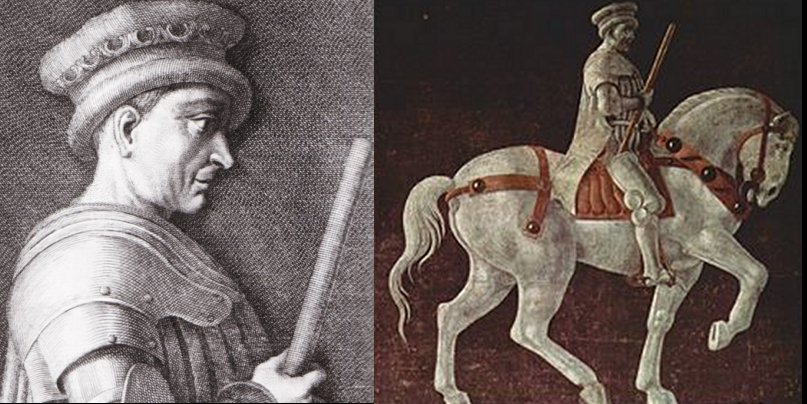John Hawkwood ‘John Sharp’: Feared, English Mercenary And His White Company In 14th Century Italy
A. Sutherland - AncientPages.com - John Hawkwood was widely known in Europe eight hundred years ago. He was an English military in the Hundred Years' War (1337 to 1453) and a mercenary operating in Italy, where he was known as Giovanni Acuto.
Hawkwood was born about 1320 in Sible Hedingham in Essex, England. His father was a leather tanner and landowner.
Left: Engraving representing John Hawkwood. Public Domain; Right: Funerary Monument to Sir John Hawkwood by Paolo Uccello (1436). Public Domain
The family was not wealthy, and when his father died, John inherited only a sack of wheat and 20 pounds. Such a legacy was not enough to make a career, so he searched for new opportunities to improve his life.
John Hawkwood – Knight And Leader Of The White Company
At that time, Edward III (1312–1377) was King of England, celebrated for his military successes and restoring royal authority after the devastating reign of his father, Edward II.
Edward III regularly needed new soldiers in the Hundred Years' War with France; John Hawkwood took this opportunity and found work as an archer in Edward's troops. He soon showed his skill on the battlefield.
After the Battle of Poitiers (1356), Hawkwood joined the White Company, an ill-famed group of mercenaries. With them, he entered Italy in 1361; only three years later, he became the company's commander. He was knighted, but it was never precisely specified when and by whom (though the Black Prince and the English King were suggested)
He Was A Leading Figure In Italian Warfare
Hawkwood was one of the leading figures in Italian warfare for the next thirty years. As the leader of the White Company, he specialized in archery and sneaky attacks.
After arriving in Italy, he fought for several factions, such as the Pope, Milan, and Florence. He served as a mercenary and was first the Pope and then various lords.
In his book 'Mercenaries and their Masters,' Michael Mallett writes that Hawkwood was "a tough, professional soldier who seemed to care less about money and more about military reputation than most of the other contemporary leaders. Much of his success is attributed to the advantages that his troops enjoyed. Still, there can be no doubt that he established unprecedented unity and loyalty in his company. He also acquired a reputation for fidelity and honesty, which was to some extent a reflection on the behavior of his rivals because Hawkwood was no paragon of virtue."
In Italy, his group was constantly moving. The Pope had been annoyed with the people of Milan because the city's prince had his mighty army, and in his opinion, he could practically do what he wanted. He was wrong.
These were times when different Italian cities remained in conflict. For example, Pisa rented John and his men to fight against Milan. Hawkwood's troops trounced him and his city. In the coming years, many of the members of the White Company died in all those more or less significant military encounters.
However, with time, John had established an excellent reputation as a commander and a formidable soldier. Many people were privileged to fight at his side. He paid them well and had no problems replacing those he lost in battles.
Hawkwood was a well-paid mercenary; he had money and knew how to make more money. For example, the city of Florence paid him 130,000 florins because it wanted to be in peace, and soon others did the same, and this clever mercenary became a rich man.
John Hawkwood's Career And 1377 Cesena Massacre
Hawkwood was responsible for the 1377 Cesena Massacre, where troops innocently killed 6,000 people under his command.
"…at Cesena in 1377, the papal mercenaries carried out massacres of the civilian populations which were to be permanent stains on the records of Italian warfare…. Cardinal Robert of Geneva, who at Cesena demanded the blood of the entire population in revenge for the murder of some of his mercenaries."
"Hawkwood is said to have obeyed Cardinal Robert's instructions with the greatest reluctance and saved some women in Cesena.
By this time, he had already been in Italy for fifteen years. He had developed a sympathy for the country and its inhabitants that the Breton mercenaries could scarcely be expected to share. However, in Cesena, more than 5,000 of the population were slaughtered, and the moats were filled with the bodies of those who tried to escape from the city..."
Hawkwood devoted himself to various diplomatic missions for the English King for the rest of his long life. He ended his career in Florence. He had always expected to return to England before he died, and he was just about to sell his possessions in Italy, but it never happened. He died in 1394 in Florence.
Updated on January 18, 2024
Written by – A. Sutherland - AncientPages.com Senior Staff Writer
Copyright © AncientPages.com All rights reserved. This material may not be published, broadcast, rewritten or redistributed in whole or part without the express written permission of AncientPages.com
Expand for referencesReferences:
Caferro W. John Hawkwood: An English Mercenary in Fourteenth-Century
Caferro W. Mercenary Companies and the Decline of Siena
More From Ancient Pages
-
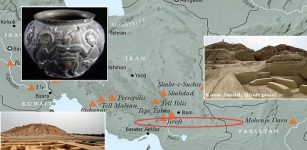 Jiroft’s Konar Sandal – Home To A Huge Ziggurat And Many Ancient Treasures
Featured Stories | Jun 8, 2021
Jiroft’s Konar Sandal – Home To A Huge Ziggurat And Many Ancient Treasures
Featured Stories | Jun 8, 2021 -
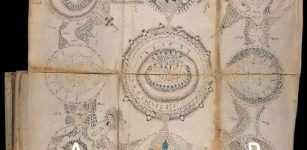 Bristol Academic Cracks Voynich Code – Century-Old Mystery Solved
Archaeology | May 15, 2019
Bristol Academic Cracks Voynich Code – Century-Old Mystery Solved
Archaeology | May 15, 2019 -
 Unique 8,400-Year-Old Burial Of A Dog Different From Modern Dogs Discovered In Sweden
Archaeology | Sep 25, 2020
Unique 8,400-Year-Old Burial Of A Dog Different From Modern Dogs Discovered In Sweden
Archaeology | Sep 25, 2020 -
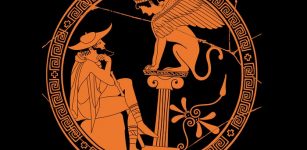 Oedipus – Tragic Prophecy About A Man Who Couldn’t Escape Fate
Featured Stories | Jan 10, 2019
Oedipus – Tragic Prophecy About A Man Who Couldn’t Escape Fate
Featured Stories | Jan 10, 2019 -
 Astonishing Secrets Of Legendary Kachinas: Watchers Of The Hopi
Civilizations | Apr 8, 2017
Astonishing Secrets Of Legendary Kachinas: Watchers Of The Hopi
Civilizations | Apr 8, 2017 -
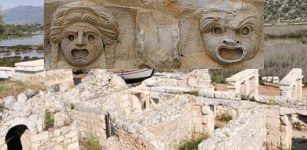 Ancient City Was Discovered Underground In Antalya’s Demre District
Archaeology | Nov 26, 2019
Ancient City Was Discovered Underground In Antalya’s Demre District
Archaeology | Nov 26, 2019 -
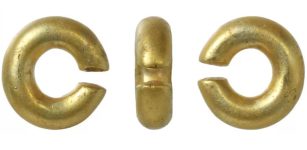 ‘Incredibly Mysterious’ Bronze Age Gold Penannular Ring Found In Norfolk
Archaeology | Apr 24, 2023
‘Incredibly Mysterious’ Bronze Age Gold Penannular Ring Found In Norfolk
Archaeology | Apr 24, 2023 -
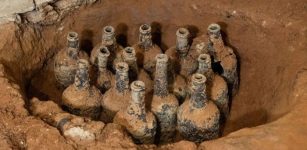 Baffling Archaeological Find At George Washington’s Mount Vernon
Archaeology | Jun 20, 2024
Baffling Archaeological Find At George Washington’s Mount Vernon
Archaeology | Jun 20, 2024 -
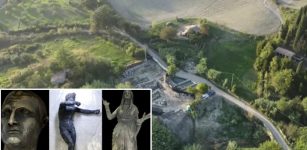 Incredible 2,300-Year-Old Roman-Etruscan Time Capsule Opened In San Casciano dei Bagni, Italy
Featured Stories | Dec 20, 2023
Incredible 2,300-Year-Old Roman-Etruscan Time Capsule Opened In San Casciano dei Bagni, Italy
Featured Stories | Dec 20, 2023 -
 Ancient Papyrus Of Merer Reveals How The Great Pyramid Of Giza Was Built
Archaeology | Sep 27, 2017
Ancient Papyrus Of Merer Reveals How The Great Pyramid Of Giza Was Built
Archaeology | Sep 27, 2017 -
 Traces Of An Ancient Near East Civilization In America – Lost Tribes And Unorthodox Discoveries – Part 1
Civilizations | Nov 8, 2020
Traces Of An Ancient Near East Civilization In America – Lost Tribes And Unorthodox Discoveries – Part 1
Civilizations | Nov 8, 2020 -
 10 Enigmatic Ancient Underwater Ruins – Our Oceans Are Full Of Secrets
Featured Stories | Aug 13, 2019
10 Enigmatic Ancient Underwater Ruins – Our Oceans Are Full Of Secrets
Featured Stories | Aug 13, 2019 -
 Exceptionally Long-Lived Ancient Form Of Hydraulic Engineering Unearthed In The Nile Valley
Archaeology | Jun 13, 2023
Exceptionally Long-Lived Ancient Form Of Hydraulic Engineering Unearthed In The Nile Valley
Archaeology | Jun 13, 2023 -
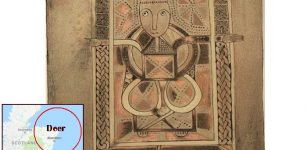 Book Of Deer And The Lost Scottish Monastery – Archaeologists Report New Finds
Archaeology | Jan 10, 2018
Book Of Deer And The Lost Scottish Monastery – Archaeologists Report New Finds
Archaeology | Jan 10, 2018 -
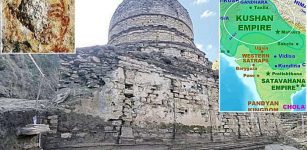 2,000-Year-Old Buddhist Complex Unearthed In Northern Swat, Pakistan
Archaeology | Feb 20, 2021
2,000-Year-Old Buddhist Complex Unearthed In Northern Swat, Pakistan
Archaeology | Feb 20, 2021 -
 Maat – Ancient Egypt’s Most Important Religious Concept
Egyptian Mythology | Apr 4, 2018
Maat – Ancient Egypt’s Most Important Religious Concept
Egyptian Mythology | Apr 4, 2018 -
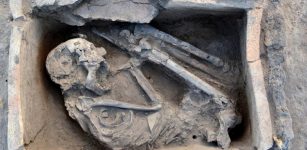 Polish Excavations At Tell el-Murra And Long History Of Egyptian Coffins
Archaeology | Apr 6, 2018
Polish Excavations At Tell el-Murra And Long History Of Egyptian Coffins
Archaeology | Apr 6, 2018 -
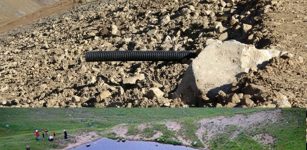 12,000-Year-Old Crater Dipsiz (‘Bottomless’) Lake, Searched For Gold, And Destroyed In Legal But Controversial Excavation
Archaeology | Nov 17, 2019
12,000-Year-Old Crater Dipsiz (‘Bottomless’) Lake, Searched For Gold, And Destroyed In Legal But Controversial Excavation
Archaeology | Nov 17, 2019 -
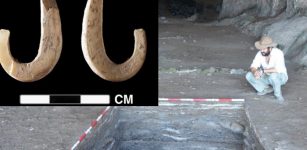 Late Pleistocene Human Colonization – What Makes Our Species Unique Compared To Other Hominins?
Archaeology | Apr 29, 2020
Late Pleistocene Human Colonization – What Makes Our Species Unique Compared To Other Hominins?
Archaeology | Apr 29, 2020 -
 Mystery Of The Lost Cahuenga Pass Treasure: Baffling Unexpected Deaths Caused By A Curse Or Natural Causes?
Featured Stories | Nov 2, 2018
Mystery Of The Lost Cahuenga Pass Treasure: Baffling Unexpected Deaths Caused By A Curse Or Natural Causes?
Featured Stories | Nov 2, 2018

